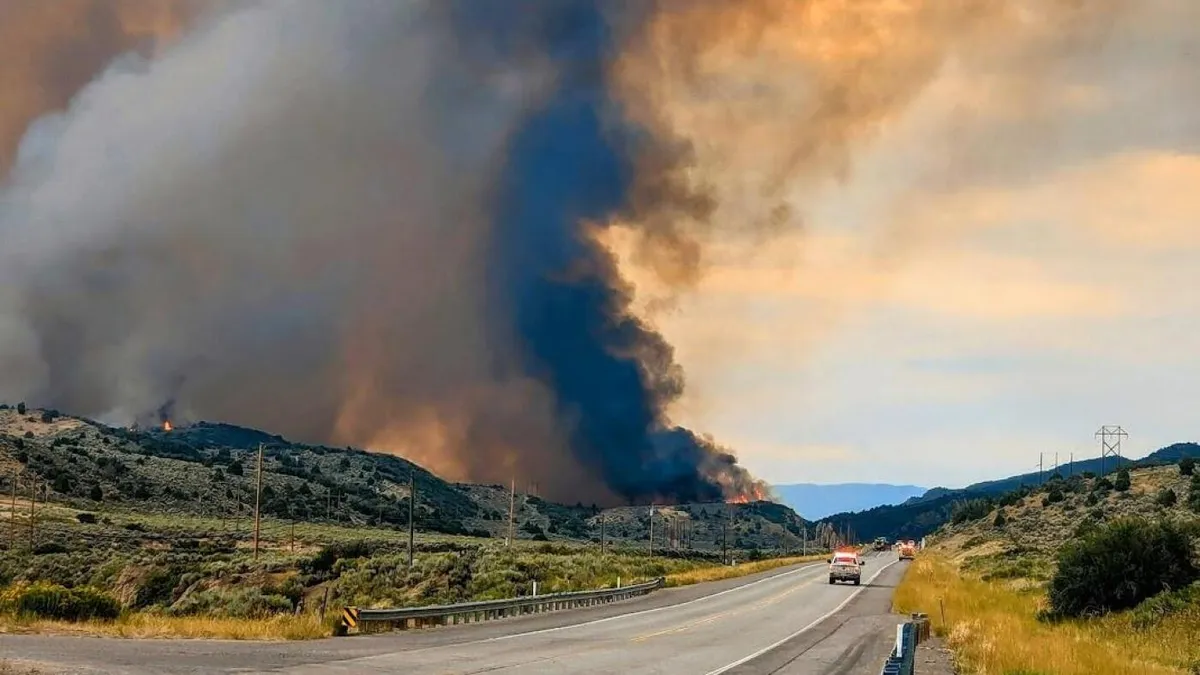
In western Colorado, firefighters are facing increasingly challenging conditions as they battle a series of wildfires fueled by strong winds and soaring temperatures. The ongoing efforts aim to protect homes and vital oil and gas resources from two significant wildfires ignited by lightning, which have rapidly expanded over recent days, scorching more than 120,000 acres so far.
The larger of the two wildfires, known as the Lee Fire, has prompted mandatory evacuations in two counties, affecting both residential areas and a prison. At one point, this devastating blaze approached within just one mile of the small ranching and hunting town of Meeker, located approximately 150 miles west of Denver. According to Bethany Urban, a fire information officer with the Rocky Mountain Area Complex Incident Management Team 3, "This is the kind of fire that is really driven in part by the significant drought-stressed fuels that are out there. It doesn't actually take that much wind to get this fire up and moving in these kinds of fuels."
When megafires like the Lee Fire ignite in overgrown forests and scrubland, especially in conditions exacerbated by climate change, containment options become limited until a significant weather shift occurs. Presently, the Lee Fire is raging through tinder-dry piñon-juniper stands, creating perilous conditions for firefighters who are working tirelessly to safeguard homes and infrastructure. Urban noted, "There have been times where we've had to pull firefighters back just to keep them safe."
Despite the dire circumstances, there is some positive news. Resources are flooding into the region, aided by a relatively quiet summer wildfire season across the West. Local business owner Michelle Morgan, who operates the Elk Mountain Inn in Meeker, reported that her establishment is fully booked with fire crews. "All of these people, men and women, have come from everywhere," Morgan expressed. "They were here so fast."
As the fire approached Meeker last week, Morgan took precautionary measures by packing her car with essential items, including photo albums and important documents, as residents were advised to be prepared for evacuation. Fortunately, firefighting crews have successfully established some containment lines along a state highway, helping to buffer the town from the encroaching flames. They continue to extinguish hotspots, much to the relief of residents like Morgan, who remarked, "From town, we had a great show of what it was doing. That was a little dicey."
Meanwhile, poor air quality remains a pressing issue in western Colorado and extends to Southern California, where the Gifford Fire has also burned over 117,000 acres. This blaze, located in a remote area of the Los Padres National Forest, has similarly prompted evacuations. Firefighters in both states are bracing for continued hot, dry, and windy conditions, with no relief in sight in the weather forecast for the Southwest this week.